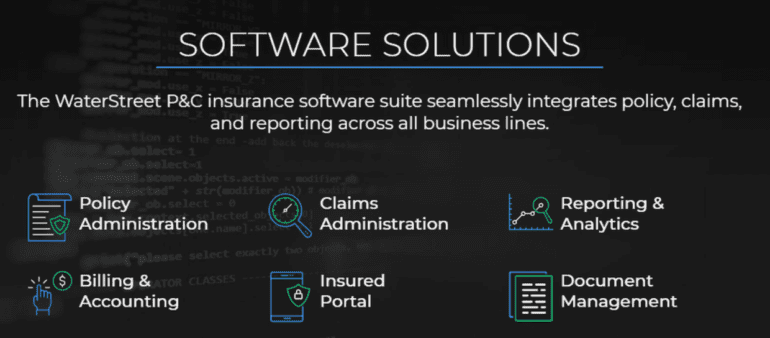TL;DR:
- Waterstreet’s study reveals the future of insurance is shaped by insurtech, AI, machine learning, and blockchain.
- 59% foresee insurtech startups as the driving force for industry growth.
- AI, machine learning, and blockchain are pivotal game-changers in Property and Casualty (P&C) insurance according to 47%.
- Risk mitigation is key for profitability; 41% focus on predictive data analysis tools.
- Robust customer support is crucial during technological transitions, noted by 45%.
- Evolving landscape of Policy Administration Systems (PAS) with internal updates (43%) and external expertise (40%).
- External data integration is vital for risk assessment; 80% emphasize digital payment integrations.
- Business Intelligence (BI) is crucial, with 63% valuing mobile app compatibility.
- Resulting improvements: refined communication, streamlined claims and customer focus.
Main AI News:
In a comprehensive analysis encompassing a multitude of distinguished insurance magnates, Waterstreet has unveiled a compelling vista of the forthcoming insurance sphere. The report elucidates the transformative sway held by insurtech innovations, artificial intelligence (AI), machine learning, and blockchain, all poised to sculpt the industry’s panorama. Survey respondents are unanimous in their projection that insurtech startups will spearhead industry expansion, with a substantial 59% firmly endorsing this notion. This amplifies the surging dominion of technology-propelled enterprises in remolding the insurance sector.
The research accentuates the consensus among 47% of participants who perceive AI, machine learning, and blockchain as definitive game-changers within the Property and Casualty (P&C) insurance realm. These cutting-edge technologies are predicted to overhaul sundry facets of the domain, ranging from underwriting intricacies to the labyrinthine realm of claims processing.
An efficacious strategy for bolstering profitability involves adept risk mitigation, a factor that resonates with 41% of top-tier industry captains who deem it a paramount growth catalyst. Insurers are diligently directing their efforts towards prescient data analytic tools, including ingenious safe-driving applications and flood-detection sensors, aimed at fomenting proactive risk governance.
In the ever-evolving technological milieu, robust client support emerges as a pivotal factor in facilitating seamless transitions to novel systems and products. The study’s revelations are unequivocal: 45% of surveyees underscore the indispensability of comprehensive customer assistance during the epochs of technological transition.
Illuminating the dynamics of Policy Administration Systems (PAS), the study unearths the shifting contours. Previously, stalwart insurers anchored themselves to internal PAS solutions, yet the research delineates a near stalemate between adherents of internal PAS upgrades (43%) and advocates for external expertise (40%), all in a bid to keep stride with the ever-changing industrial dynamics.
As a cornerstone of holistic risk evaluation, the assimilation of external data takes center stage, especially with geographical insights transcending the conventional precincts of risk appraisal. Impressively, an overwhelming 80% of technology frontrunners accentuate the paramountcy of digital payment harmonization in the impending epochs.
Nurturing Business Intelligence (BI) assumes a pivotal role in the industry’s metamorphosis, facilitating the harnessing of data’s boundless potential. A notable 63% of tech honchos extol the virtues of mobile app compatibility for real-time policy access, propelling the sector towards an era of augmented usability and user-centric interfaces.
Waterstreet’s comprehensive study vividly paints the evolving canvas of the insurance sector. Emboldened by insurtech revolutions, AI acumen, and data amalgamation, policyholders can anticipate refined communication channels, streamlined claims adjudication, and an elevated emphasis on client contentment.
Conclusion:
The findings underscore a transformative era for the insurance market. The surge in insurtech innovations and integration of advanced technologies indicate a trajectory towards enhanced efficiency, client-centricity, and risk management. As the industry pivots towards technology-driven strategies, it is poised to provide unparalleled services, making precision, agility, and customer satisfaction its hallmarks in the years ahead.

